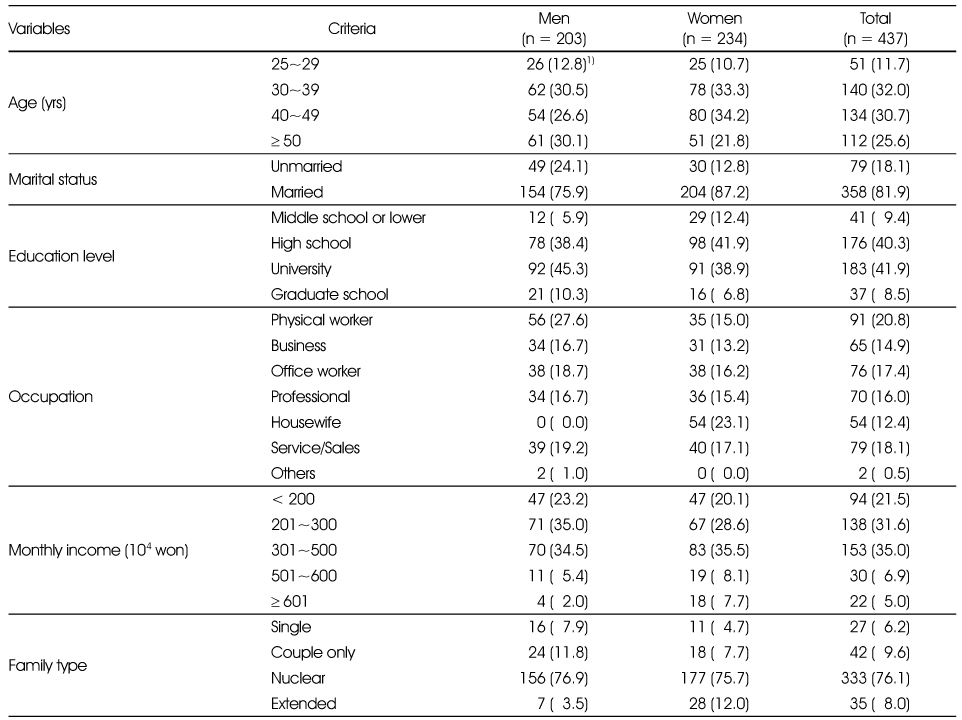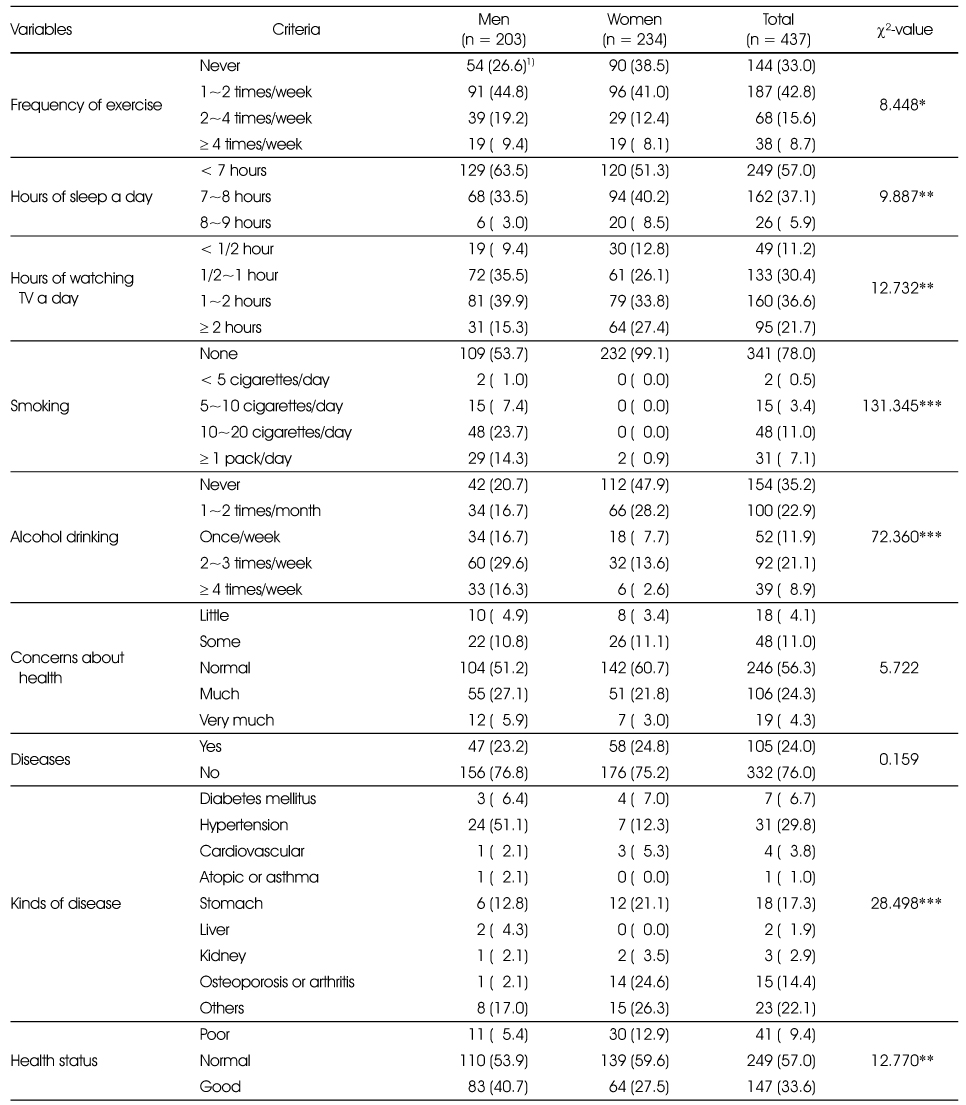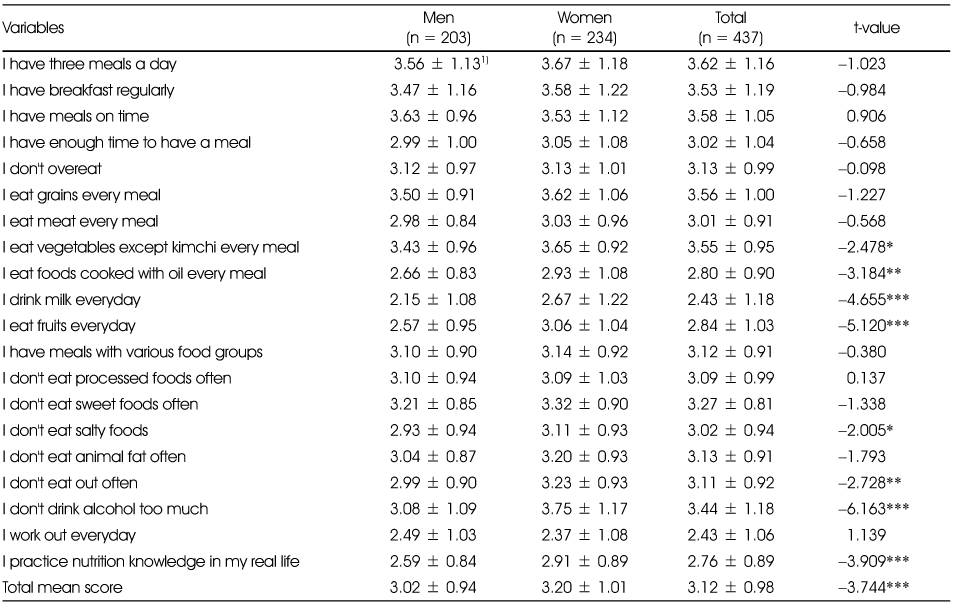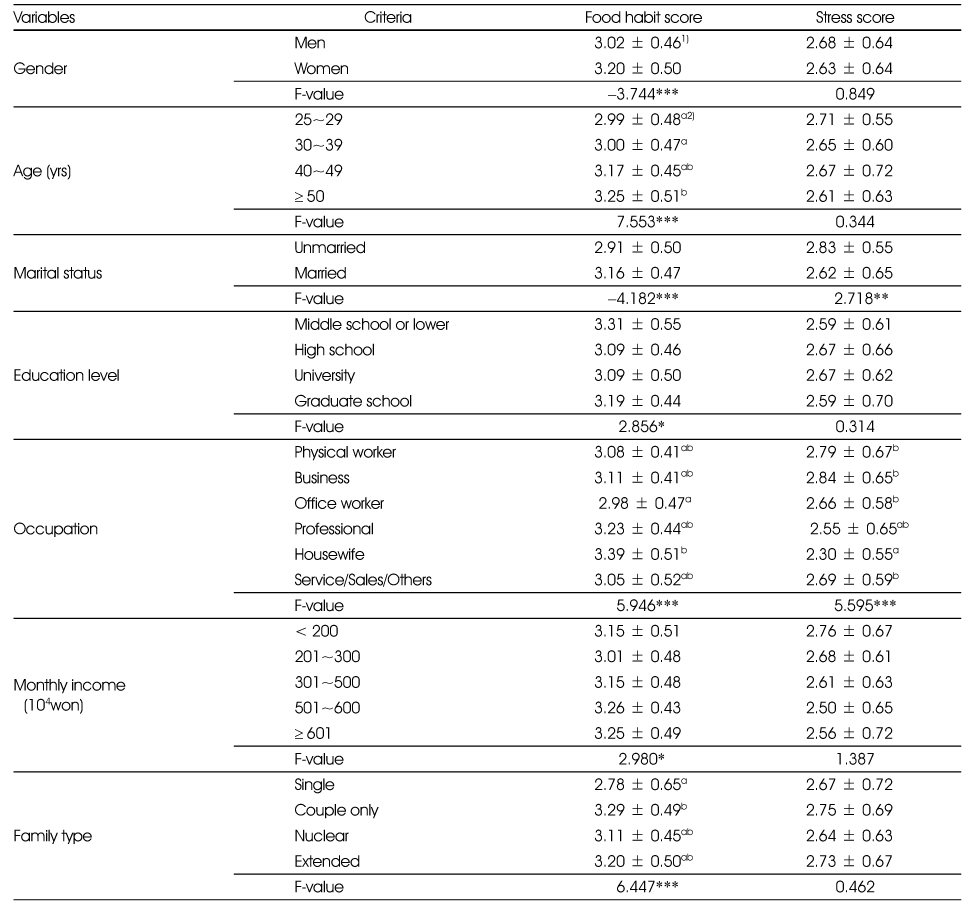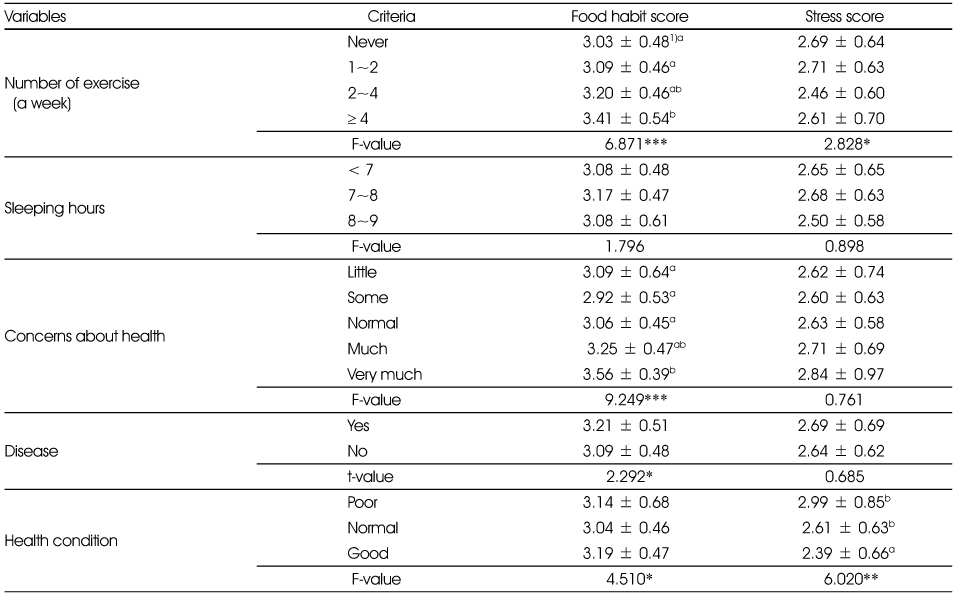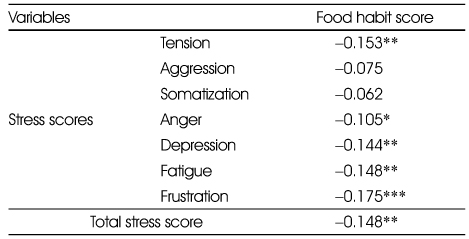References
1. Bellisle F, Louis-Sylvestre J, Linet N, Rocaboy B, Dalle B, Cheneau F, L'Hinoret D, Guyot L. Anxiety and food intake in men. Psychosom Med 1990. 52(4)452–457.
2. Choi MK, Jun YS, Kim AJ. A comparative study of dietary behaviors and nutrient intakes according to alcohol drinking among male university students in Chungnam. J Korean Soc Food Sci Nutr 2001. 30(5)978–985.
3. Choi MK, Kim JM, Kim JG. A study on the dietary habit and health of office workers in Seoul. Korean J Food Cult 2003. 18(1)45–55.
4. Chung HK, Kim MH, Woo NRY. The effect of life stress on eating habit of university students in Chungcheongnam-do province. Korean J Food Cult 2007. 22(2)176–184.
5. Han MJ, Cho HA. Dietary habit and perceived stress of college students in Seoul area. Korean J Diet Cult 1998. 13(4)317–326.
6. Hwang JS. Comparative analysis of stress responses and stress coping styles of adults as a function of exercise/sport participation variable 2008. Ewha Womens University; 74–77.
Dissertation.
7. Posner I, Leitner LA, Lester D. Diet, cigarette smoking, stressful life events, and subjective feeling of stress. Psychol Rep 1994. 74841–842.
8. Koh KB, Park JK, Kim CH. Development of the stress response inventory. J Korean Neuropsychiatr Assoc 2000. 39(4)707–719.
9. Kim HK, Kim JH, Park YS. A study on dietary behavior and health condition of employees at department stores. Korean J Community Nutr 2008. 13(3)374–385.
10. Kim JG, Kim JM, Choi MG. Study on the stress and dietary life of office workers in Seoul. Korean J Soc Food Cookery Sci 2003. 19(4)413–422.
11. Kim JH. A study on the stress and food habit of adults in Ulsan 2010. Ulsan University; 49–53.
Dissertation.
12. Kim KH. A survey on the relation between depressive trends, stress and attitudes of food intake in adults. Korean J Diet Cult 1998. 13(4)327–337.
13. Kim KH. A survey on the relation between stress and nutrient intake in adults. Korean J Diet Cult 1999. 14(5)507–515.
14. Kim KH. The relation between life stress and nutrition intake status in female university students. Korean J Diet Cult 2000. 15(5)387–397.
15. Kim MH, Lee JC, Bae YS. The evaluation study on eating behavior and dietary quality of elderly people residing in Samcheok according to age group. Korean J Community Nutr 2009. 14(5)495–508.
16. Kim MK, Shin DS, Wang SK. Effect of the nutrient intakes on psychosocial stress. Korean J Diet Cult 1995. 10(5)405–417.
17. Kim YH, Park HS. Stressful life events and somatic symptoms of urban women. J Nurs Acad Soc 1992. 22(4)569–588.
18. Kim YO. Food and nutrient consumption patterns of Korean adults based on their levels of self reported stress. Korean J Community Nutr 2003. 8(3)340–348.
19. Min SH, Oh HS, Kim JH. Dietary behaviors and perceived stress of university students. Korean J Food Cult 2004. 19(2)158–169.
20. Morley JE, Levine AS, Rowland NE. Stress induced eating. Life Sci 1983. 32(19)2169–2182.
21. Oh JJ, Choi SK, Kim TH, Kim ES, Oh JK. The relationship between stress and life styles in businessman. J Korean Acad Fam Med 1998. 19(4)394–404.
22. Park JE, Kim SJ, Choue RW. Study on stress, depression, binge eating, and food behavior of high school girls based on their BMI. Korean J Community Nutr 2009. 14(2)175–181.
23. Park MH, Choi YS, Lee MA, Choi BS, Jung HJ. A study on the food behaviors and nutritional status of industrial workers. Korean J Community Nutr 1999. 4(2)194–206.
24. von Bothmer MI, Fridlund B. Gender differences in health habits and inmotivation for a healthy lifestyle among Swedish university students. Nurs Health Sci 2005. 7(2)107–118.
